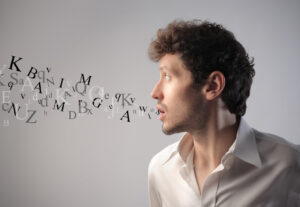What are cognates meaning? For an Englishman “store” does not mean a place to buy groceries, just as for an American a cartridge is not ammunition. If you meet and talk to a foreigner on a foreign vacation it is easy to understand each other exactly the opposite, even if it seems that you use the simplest words.
“Tones” collected 10 words that in Russian and English sound the same, but have different meanings.
Episode and Эпидод
In Russian the word “episode” means an excerpt or a single scene, not a completed work, whereas English episode means a full-fledged episode of a series. Recently, however, “episode” in the sense of “series” has also taken root in our country, primarily due to the popularity of soap operas.
2. Baton and Батон

In French, baton is a stick. In Russia, they adopted this word and, for some similarity of form, called so elongated bread. The English, in turn, borrowed the same baton, and so called not a rifled wheat bread, but… …a police truncheon. Or conductor’s stick.
3. Routine and Рутина
Routine for us is following a habitual pattern, something that is done mechanically. In England and the United States, a routine is a routine that has no hint of dullness. Example: My morning routine has to inspire me, which translates as “My morning routine should inspire me.
4. Caucasian and Кавказец
You do not need to be born in the Caucasus to hear caucasian in English-speaking countries, because this word can be used to refer to all people with European appearance. For example, this word can be mentioned in the application form if you want to indicate your ethnicity (for example, when making an appointment with the doctor).
5. Lunatic and Лунатик
Do not call your American friend a sleepwalker, even if he or she walks at night – he or she will take offense. It is better to offer him to read: https://argoprep.com/blog/encouraging-sight-word-development-in-all-ages/. The reason is that the English word lunatic is translated into Russian as “crazy, crazy person”. The word for person who sleepwalks is “sleepwalker” in English. A horror movie based on a script by Steven-who-knows-what’s-his-name will not lie.
6. Magazine and Магазин
Being abroad for the first time, the Russians may well say: “I’m going to the magazine. But they will understand it the wrong way round, because magazine in English means a magazine. If you want to go to a store, say store. Or shop.
7. Student and Студент
Even with such a seemingly simple word can be confusing, because English speakers use student not only for college or university students, but also for high school students. So don’t be surprised if you hear that an 8-year-old child is also a student.
8. Decade and Декада
This is a word that even translators get confused about. In both Russian and English, the term was borrowed from Greek, where deka means “ten.” The catch is that in Russia “decade” most often means ten days, whereas in English decade is always ten years.
9. Patron and Патрон
When you hear the English word patron, don’t rush to judgment: it does not refer to ammunition. In the USA or England, this word stands for a loyal customer or sponsor who is willing to support something financially. And in French, le patron is the boss or owner.
10. Expertise and Экспертиза
This term comes from Latin expertus (experienced), and in Russian it is the name of a process of expert evaluation or judgment. In English expertise is the name of the expert opinion itself. Example: He has considerable expertise in Russian history – “She has extensive knowledge of Russian history.
What other similar but different words have we forgotten? Write in the comments!